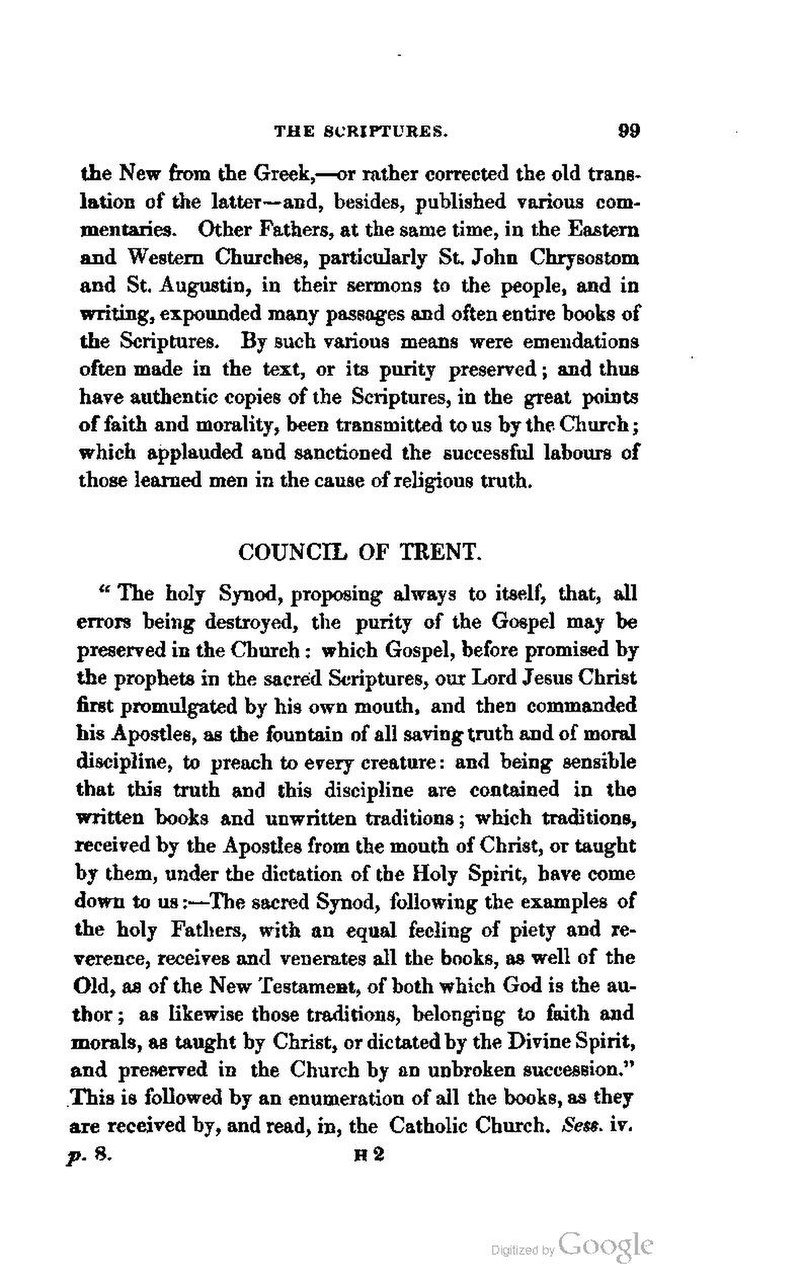the New from the Greek, or rather corrected the old translation of the latter-and, besides, published various commentaries. Other Fathers, at the same time, in the Eastern and Western Churches, particularly St. John Chrysostom and St. Augustin, in their sermons to the people, and in writing, expounded many passages and often entire books of the Scriptures. By such various means were emendations often made in the text, or its purity preserved ; and thus have authentic copies of the Scriptures, in the great points of faith and morality, been transmitted to us by the Church; which applauded and sanctioned the successful labours of those learned men in the cause of religious truth.
COUNCIL OF TRENT.
“ The holy Synod, proposing always to itself, that, all errors being destroyed, the purity of the Gospel may be preserved in the Church : which Gospel, before promised by the prophets in the sacred Scriptures, our Lord Jesus Christ first promulgated by his own mouth, and then commanded his Apostles, as the fountain of all saving truth and of moral discipline, to preach to every creature: and being sensible that this truth and this discipline are contained in the written books and unwritten traditions ; which traditions, received by the Apostles from the mouth of Christ, or taught by them, under the dictation of the Holy Spirit, have come down to us :-The sacred Synod, following the examples of the holy Fathers, with an equal feeling of piety and reverence, receives and venerates all the books, as well of the Old, as of the New Testament, of both which God is the author; as likewise those traditions, belonging to faith and morals, as taught by Christ, or dictated by the Divine Spirit, and preserved in the Church by an unbroken succession.” This is followed by an enumeration of all the books, as they are received by, and read, in, the Catholic Church, Sess. iv.
